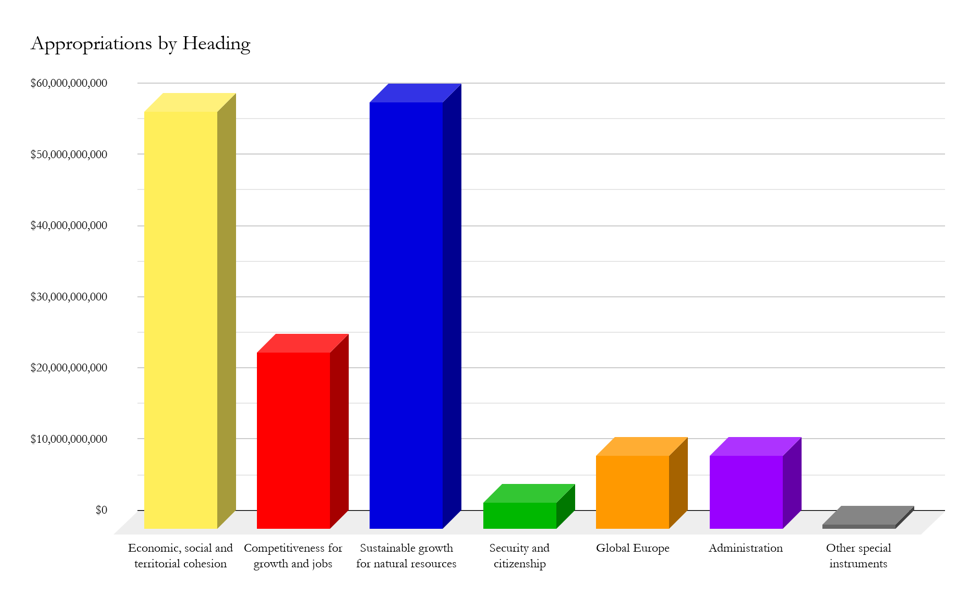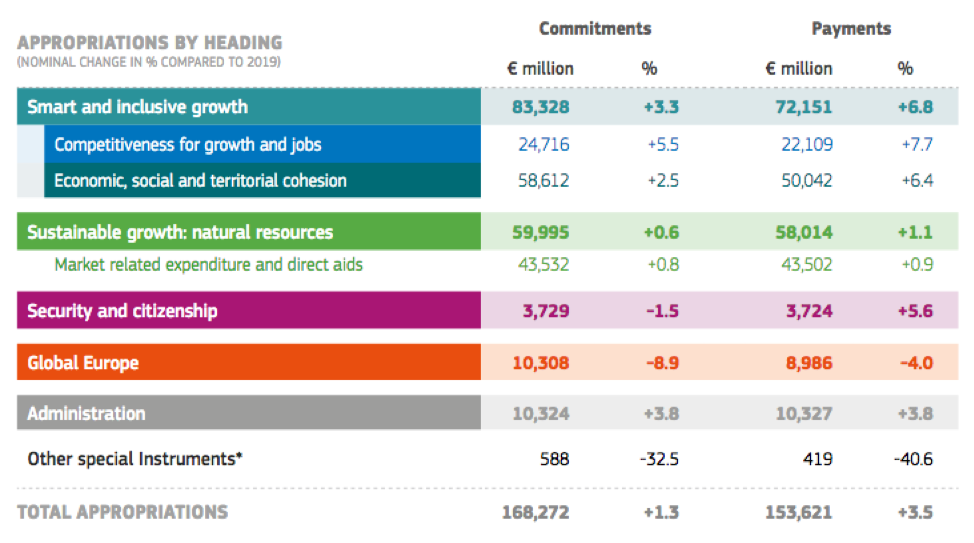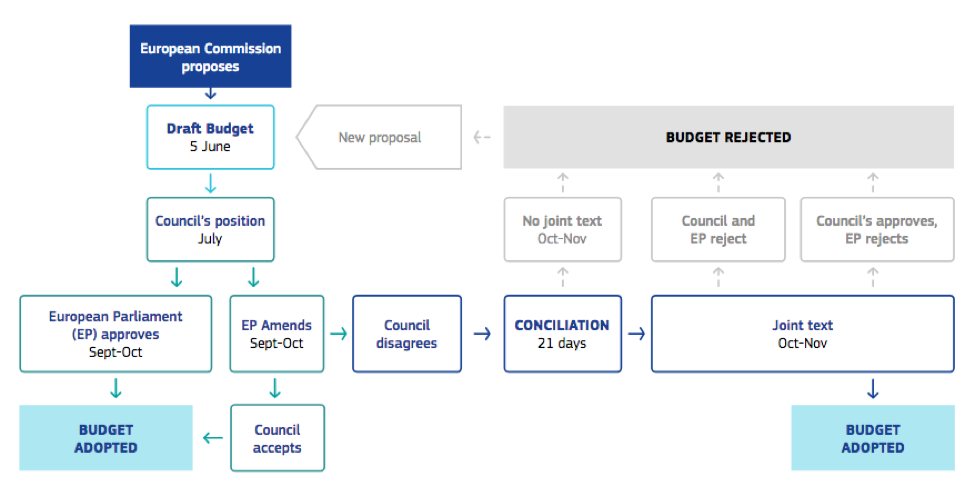News
2020 Draft EU Budget

On 5 June 2019, the Commission adopted the Draft EU Budget for 2020, the last year of the current financial framework that started in 2014. Being the last budget of the 2014-2020 financial framework, it is also designed to provide a smooth transition to the next budgetary cycle that will start in 2021. The European Parliament and the European Union Member States will now jointly discuss this proposal that should be approved and adopted as definitive by November.
The Commission will invest €168.3 billion to make the European economy more competitive globally, but it will also support other EU priorities:
- Creating more jobs, investing in projects for the youth like Erasmus+ and European Solidarity Corps, helping SMEs grow;
- Protecting EU citizens, providing security and solidarity on both sides of the EU’s borders;
- Reducing economic and social differences between European regions;
- Tackling climate change and supporting farmers, fisheries and biodiversity
In Chart 1, we can see how the €168.3 billion will be spent by focus area. The Commission will invest around €60 billion in promoting sustainable growth, supporting farmers, fisheries and biodiversity, with €12.6 billion of the budget to be dedicated to tackle climate change across the Union. Furthermore, €58 billion will go to the reinforcement of economic, social and territorial cohesion within all EU regions, and an extra €24 billion will be used to improve competitiveness for growth and jobs. Of the €24 billion, more than €13 billion will go to research and innovation under Horizon 2020, including the enhanced European Innovation Council, while around €3 billion will be invested to improve the Erasmus+ program. An additional €1.2 billion will be used to develop Europe’s own global satellite navigation system Galileo.

The Commission will spend around €3.8 billion to protect EU citizens and provide security and solidarity in the EU and beyond, with €420 million directed to the European Border and Coast Guard Agency (Frontex), and €560 million to be used for humanitarian and development assistance in Syria, Lebanon and Jordan. Global Europe will receive more than €10 billion, that will also be directed to improve the security of the European Union, as well as the quality of life of citizens across the Union.

The European Union, its bodies and agencies and other institutions will require around €10 billion for the ordinary administration, and an additional €580 million will go to other special instruments, namely the European Globalisation Adjustment Fund and the European Union Solidarity Fund.
This Draft EU Budget proposal is based on the assumption that the United Kingdom will ratify the Withdrawal Agreement, will exit in an orderly fashion and will participate fully in the financing of the 2020 EU budget as if it were a Member State.
The upcoming discussions within the European Parliament, as well as between Member States, will follow the timetable represented in Image 2.

After the preliminary negotiations the Council will communicate its position on the 2020 Draft EU Budget, and subsequently the proposed Budget plan will be transferred to the European Parliament for discussion. In the eventuality that the Parliament approves, the Budget is accepted and therefore adopted by the European Union and its Member States.
On the contrary, if the European Parliament amends the Draft there are two possibilities: 1. if the Council accepts the amendments, the Budget is adopted; 2. if the Council does not accept the amendments, a 21-day conciliation committee is convened, in order to draft a new, joint text between Council and Parliament. If approved, the reformed Draft Budget is adopted; if not the Budget is rejected and a new proposal will be drafted by the European Commission.
Last news
-

-
 18 November 2025
18 November 2025Council and Parliament reach agreement on the EU budget for 2026
-
 14 November 2025
14 November 2025Commission announces over €5 billion in funding for Erasmus+ 2026






